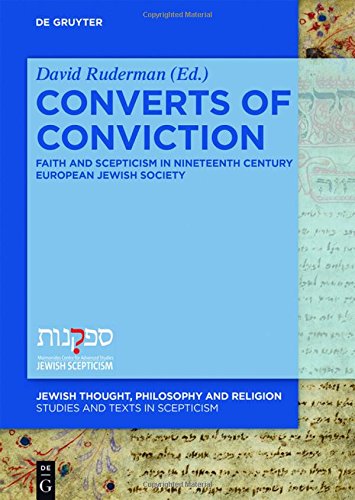

Most ebook files are in PDF format, so you can easily read them using various software such as Foxit Reader or directly on the Google Chrome browser.
Some ebook files are released by publishers in other formats such as .awz, .mobi, .epub, .fb2, etc. You may need to install specific software to read these formats on mobile/PC, such as Calibre.
Please read the tutorial at this link: https://ebookbell.com/faq
We offer FREE conversion to the popular formats you request; however, this may take some time. Therefore, right after payment, please email us, and we will try to provide the service as quickly as possible.
For some exceptional file formats or broken links (if any), please refrain from opening any disputes. Instead, email us first, and we will try to assist within a maximum of 6 hours.
EbookBell Team

4.1
90 reviewsThe study of Jewish converts to Christianity in the modern era has long been marginalized in Jewish historiography. Labeled disparagingly in the Jewish tradition as meshumadim (apostates), many earlier Jewish scholars treated these individuals in a negative light or generally ignored them as not properly belonging any longer to the community and its historical legacy. This situation has radically changed in recent years with an outpouring of new studies on converts in variegated times and places, culminating perhaps in the most recent synthesis of modern Jewish converts by Todd Endelman in 2015.
While Endelman argues that most modern converts left the Jewish fold for economic, social, or political reasons, he does acknowledge the presence of those who chose to convert for ideological and spiritual motives. The purpose of this volume is to consider more fully the latter group, perhaps the most interesting from the perspective of Jewish intellectual history: those who moved from Judaism to Christianity out of a conviction that they were choosing a superior religion, and out of doubt or lack of confidence in the religious principles and practices of their former one. Their spiritual journeys often led them to suspect their newly adopted beliefs as well, and some even returned to Judaism or adopted a hybrid faith consisting of elements of both religions. Their intellectual itineraries between Judaism and Christianity offer a unique perspective on the formation of modern Jewish identities, Jewish-Christian relations, and the history of Jewish skeptical postures.
The approach of the authors of this book is to avoid broad generalizations about the modern convert in favor of detailed case studies of specific converts in four distinct localities: Germany, Russia, Poland, and England, all living in the nineteenth- century. In so doing, it underscores the individuality of each convert’s life experience and self-reflection and the need to examine more intensely this relatively neglected dimension of Jewish and Christian cultural and intellectual history.